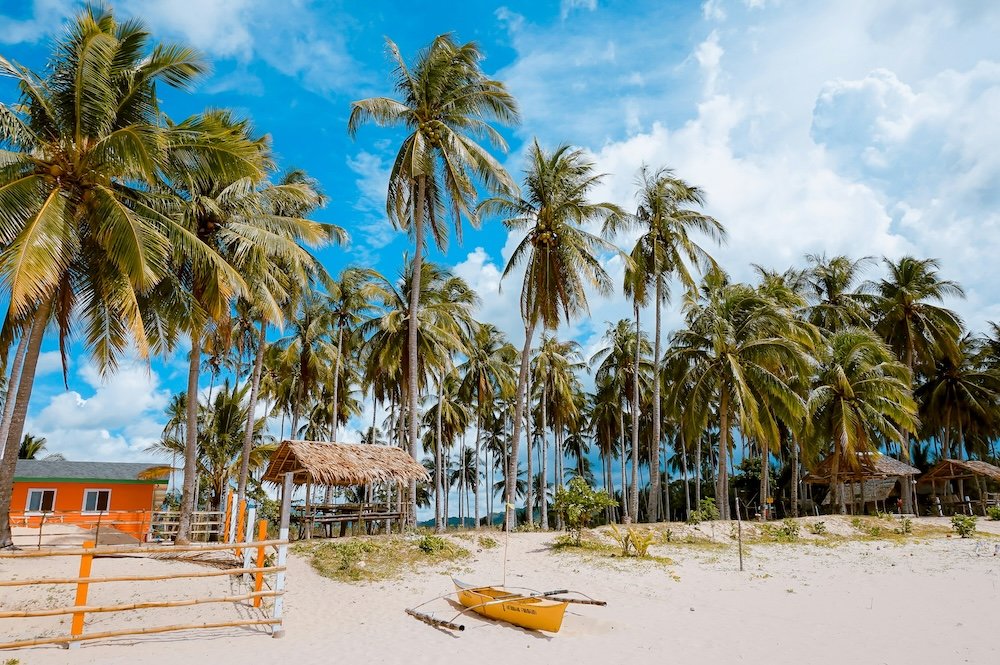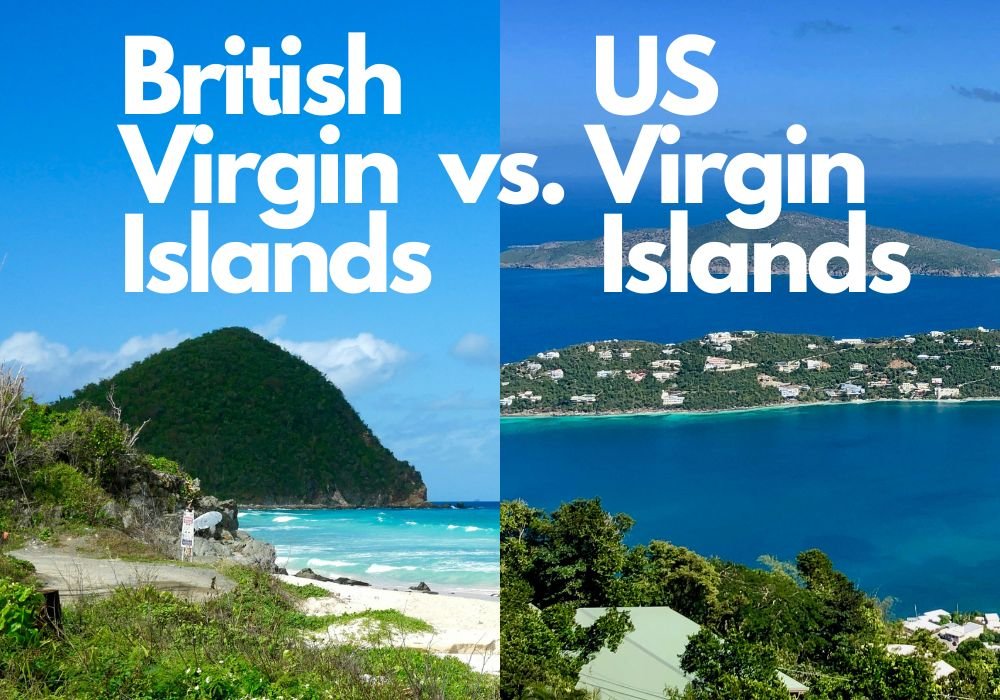
US Virgin Islands vs British Virgin Islands – Want to discover which of these are best?
The Caribbean has long been the epitome of paradise on Earth for travelers around the globe.
With its crystal-clear waters, pristine beaches, and vibrant cultures, it offers a getaway that promises relaxation, adventure, and unforgettable experiences.
Among the constellation of islands that adorn the Caribbean Sea, two destinations often spark the curiosity of those planning their next vacation: the US Virgin Islands and the British Virgin Islands.
The choice between these stunning locales is not just a matter of geography but also of the unique experiences each offers to its visitors.
The Caribbean, with its warm climate, diverse ecosystems, and hospitable people, stands out as a premier travel destination.
It’s a region where the rhythm of the ocean waves matches the pace of life, creating an inviting atmosphere for all who step on its shores.
The allure of the Caribbean extends beyond its physical beauty, enveloping visitors in a world where history, culture, and nature intertwine seamlessly.
In this quest for paradise, two names often emerge at the forefront of travelers’ minds: the US Virgin Islands and the British Virgin Islands.
This article aims to delve into the heart of this comparison, exploring what sets these destinations apart and what they share.
The focus keyword, “US Virgin Islands vs British Virgin Islands,” not only serves as our guiding theme but also as a testament to the rich tapestry of experiences awaiting in each locale.
Whether you’re drawn to the US Virgin Islands’ vibrant culture and history or the British Virgin Islands’ serene landscapes and sailing adventures, both promise a journey unlike any other.
While they share the tranquil waters of the Caribbean Sea, the US Virgin Islands and the British Virgin Islands each boast their distinctive charm.
The US Virgin Islands, with its mix of natural beauty and historical sites, offers a blend of leisure and learning.
In contrast, the British Virgin Islands, known for its laid-back ambiance and world-renowned sailing conditions, presents a haven for those seeking peace and adventure on the high seas.
As we navigate through the comparison of these two magnificent destinations, we’ll uncover the unique aspects that might sway your decision on which one to visit first.
Geographic and Historical Context
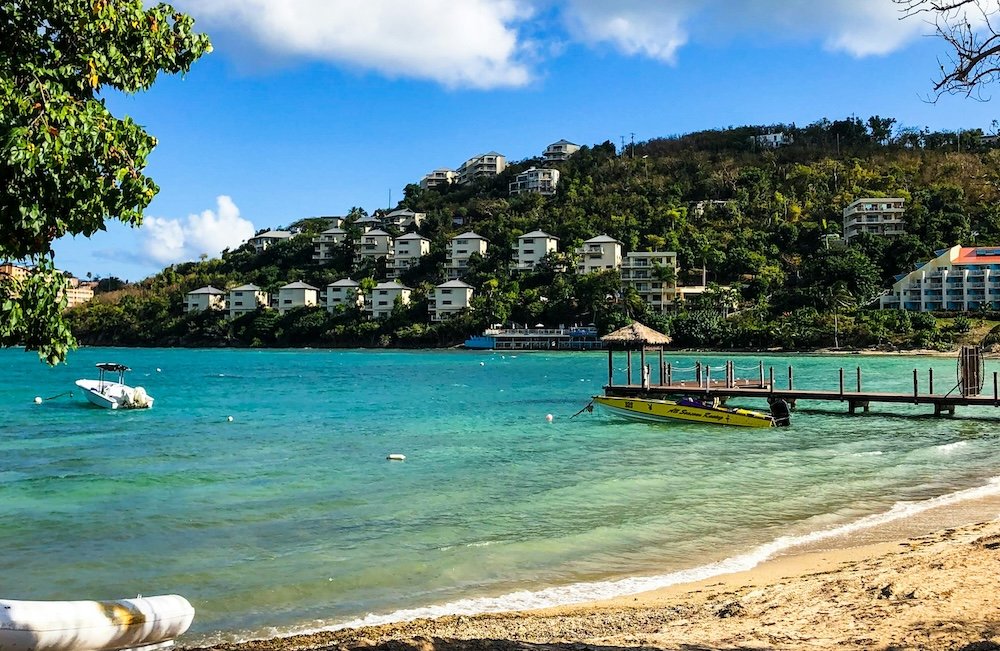
The allure of the Caribbean is magnified by its diverse landscapes and the rich history of its islands.
Among these, the US Virgin Islands and British Virgin Islands stand out not only for their breathtaking beauty but also for their fascinating historical backgrounds and distinct political affiliations.
Understanding the geographical setting and historical context of these destinations can offer insights into their unique cultural fabric and influence on visitors’ experiences.
Location, Size, and Geography
US Virgin Islands: Located in the Caribbean Sea and the Atlantic Ocean, the US Virgin Islands consist of the main islands of Saint Thomas, Saint John, and Saint Croix, along with numerous smaller islands. The total land area is about 133 square miles, with varied landscapes ranging from beautiful beaches to mountainous terrains, offering a rich biodiversity and stunning vistas.
British Virgin Islands: Northeast of the US Virgin Islands, the British Virgin Islands are a collection of over 50 smaller islands and cays, with the main islands being Tortola, Virgin Gorda, Anegada, and Jost Van Dyke. Covering an area of about 59 square miles, the archipelago is renowned for its spectacular coral reefs, serene beaches, and sailing waters.
Brief History and Its Impact on Culture
US Virgin Islands: The islands’ history is marked by the influences of the Ciboney, Carib, and Arawaks indigenous peoples, followed by European colonization starting with Christopher Columbus in 1493. Over centuries, they were controlled by Spain, the Netherlands, France, Britain, Denmark, and finally the United States. The blend of African, European, and American cultures has shaped the islands’ vibrant cultural heritage, evident in its music, festivals, and cuisine.
British Virgin Islands: Similarly, the British Virgin Islands have a rich history starting with the Arawak and Carib peoples, followed by Christopher Columbus’s discovery in 1493. The islands became a British colony in the 17th century. Sugar cane cultivation, powered by African slave labor, dominated its economy until the abolition of slavery. Today, the British influence melds with the diverse cultures of its past, creating a unique cultural identity.
Political Status: Territory of the USA vs British Overseas Territory
US Virgin Islands: In 1917, the United States purchased the islands from Denmark, making them an unincorporated territory of the US. This status means that residents are US citizens, but the islands have their own government and operate under a legal system separate from the mainland. They participate in US elections but do not have voting representation in Congress.
British Virgin Islands: As a British Overseas Territory, the British Virgin Islands maintain a degree of autonomy with their local government, while defense and foreign affairs are handled by the UK. Residents are British Overseas Territories citizens, and the islands operate under a legal system based on English law. They have their governor and legislative assembly, reflecting a blend of British governance and local autonomy.
Accessibility and Travel Logistics

When planning a Caribbean getaway, understanding the logistics of travel can significantly impact your experience.
The “US Virgin Islands vs British Virgin Islands” debate extends into the realm of accessibility, with each offering unique entry requirements, flight options, and inter-island travel experiences.
Here’s what you need to know to make your journey as smooth as possible.
Overview of Entry Requirements and Visas
US Virgin Islands: As a territory of the United States, entry into the US Virgin Islands for American citizens is straightforward, requiring no passport for travel from the mainland or other US territories. However, proof of citizenship, such as a birth certificate along with a government-issued photo ID, is recommended. International visitors must follow the same entry requirements as they would when entering the mainland United States, including having a valid passport and, for some, a US visa.
British Virgin Islands: Entry into the British Virgin Islands for tourists typically requires a valid passport and proof of onward travel. Visitors from some countries may also need a visa, so it’s essential to check the latest entry requirements before your trip. Unlike the US Virgin Islands, the British Virgin Islands’ entry requirements apply equally to all travelers, including those from the UK.
Comparing Flight Options and Accessibility from Major Airports
US Virgin Islands: The main airports serving the US Virgin Islands are Cyril E. King Airport on Saint Thomas and Henry E. Rohlsen Airport on Saint Croix. Direct flights are available from several major US cities, making access relatively easy. Saint John does not have an airport and is accessible via ferry from Saint Thomas.
British Virgin Islands: The primary gateway to the British Virgin Islands is Terrance B. Lettsome International Airport on Beef Island, connected to Tortola by a bridge. Direct flights from the US mainland are limited, with most travelers flying into nearby Puerto Rico or the US Virgin Islands and then taking a regional flight or ferry. This extra step can add to the travel time but also to the adventure.
Information on Inter-Island Travel Within Each Destination
US Virgin Islands: Inter-island travel is facilitated by regular ferry services and regional flights, allowing visitors to easily explore the different islands. Ferries operate frequently between Saint Thomas and Saint John, with less frequent services to Saint Croix.
British Virgin Islands: The British Virgin Islands are renowned for their sailing, with numerous charter options available for exploring the archipelago. Regular ferries also connect the main islands, offering a convenient way to travel between Tortola, Virgin Gorda, Jost Van Dyke, and Anegada.
Climate and Best Times to Visit
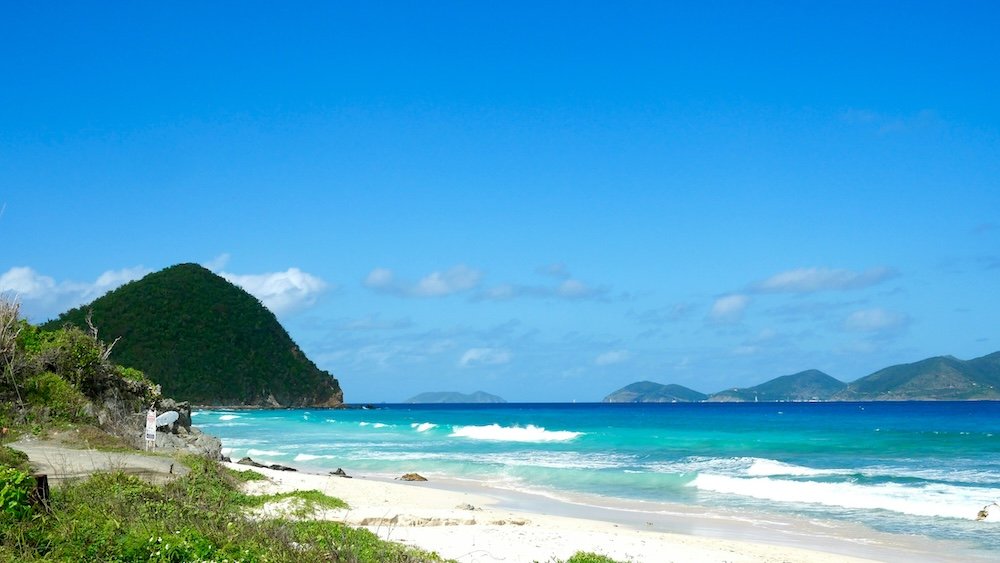
Choosing between the “US Virgin Islands vs British Virgin Islands” for your next Caribbean retreat also involves considering the climate and timing of your visit.
Both destinations offer warm, tropical weather year-round, but certain times may enhance your experience depending on what you’re looking for in your vacation.
Overview of the Climate in Both Destinations
The US Virgin Islands and the British Virgin Islands enjoy a tropical climate characterized by warm temperatures throughout the year.
The average temperature ranges from the mid-70s°F (23-24°C) in the winter to the high 80s°F (30-31°C) in the summer.
The region experiences two main seasons: a dry season from December to May and a wet season from June to November, which also coincides with the Atlantic hurricane season.
Best Seasons to Visit the US Virgin Islands vs British Virgin Islands
US Virgin Islands: The best time to visit the US Virgin Islands is during the dry season, from December to May. During these months, the weather is idyllic, with lower humidity and minimal rainfall, making it perfect for beach activities, hiking, and exploring the islands’ natural beauty.
British Virgin Islands: Similarly, the British Virgin Islands are best visited during the dry season. This period is also ideal for sailing and water sports, given the favorable wind conditions and comfortable sea temperatures. The peak tourist season is from December to April, offering lively cultural events and a vibrant atmosphere.
Times to Avoid Due to Weather or Crowded Events
Both the US Virgin Islands and the British Virgin Islands are susceptible to hurricanes from June to November, with September being particularly prone.
While modern forecasting allows for ample warning, it’s advisable to be cautious when planning a trip during these months.
Additionally, the peak season, especially around Christmas, New Year’s, and Easter, can see a significant influx of tourists.
Accommodation prices can skyrocket, and popular spots may become crowded.
If you prefer a quieter visit, consider the shoulder months of November or late April to early May, when the weather is still pleasant, and the crowds have thinned out.
Natural Attractions and Activities
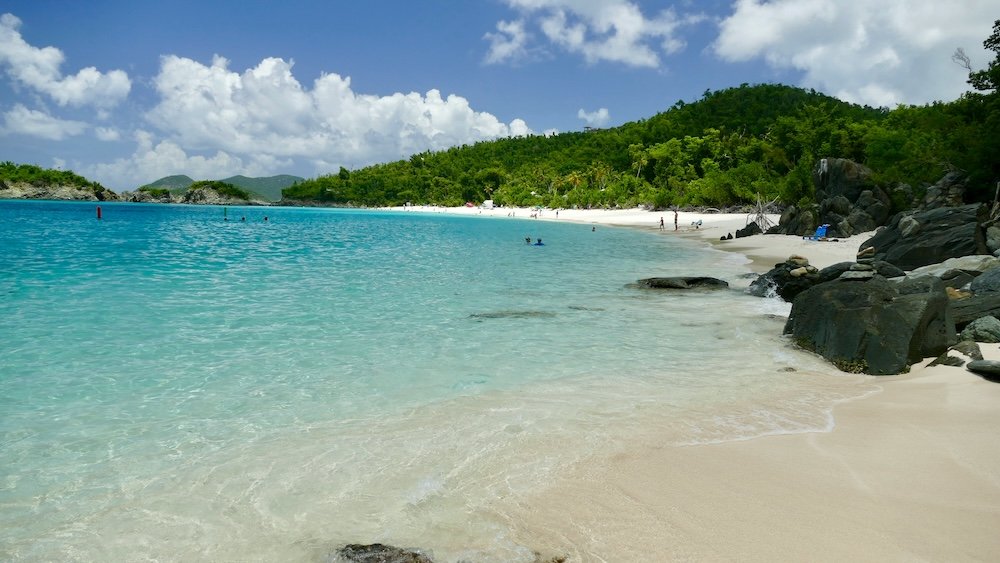
When debating “US Virgin Islands vs British Virgin Islands” for your next island getaway, the allure of natural attractions and the plethora of outdoor activities each destination offers becomes a significant consideration.
From pristine beaches to lush national parks and exceptional underwater adventures, both island groups beckon with unique natural phenomena and a wealth of activities for every type of adventurer.
Key Natural Attractions in Both Destinations
US Virgin Islands: The US Virgin Islands are home to some of the Caribbean’s most stunning landscapes and seascapes. Highlights include the world-renowned Magens Bay on Saint Thomas, Trunk Bay on Saint John with its underwater snorkeling trail, and the bioluminescent bay in Salt River Bay National Historical Park and Ecological Preserve on Saint Croix. The Virgin Islands National Park on Saint John offers visitors a chance to explore hiking trails that weave through ruins of historic sugar plantations amidst lush tropical forests.
British Virgin Islands: The British Virgin Islands boast a myriad of breathtaking natural attractions, such as the Baths on Virgin Gorda, where granite boulders create mysterious grottoes and pools on the beach. Anegada Island stands out with its coral atolls and the opportunity to see flamingos in their natural habitat. For those interested in marine life, the RMS Rhone National Marine Park offers an exceptional snorkeling and diving experience around a historic shipwreck.
Comparison of Outdoor Activities Available
Both destinations offer an array of outdoor activities, but each has its specialties:
- Snorkeling and Diving: The clear waters of both the US and British Virgin Islands are perfect for snorkeling and diving. The US Virgin Islands are known for their accessible snorkeling spots right off the beach, while the British Virgin Islands offer more for advanced divers, including wrecks and deeper reefs.
- Hiking: The US Virgin Islands’ national parks provide well-marked trails for all levels, with breathtaking views and historical sites. The British Virgin Islands also offer hiking opportunities, though trails can be more rugged and less frequented, appealing to those seeking solitude and unspoiled nature.
- Sailing: Sailing is a highlight in both destinations, but the British Virgin Islands are often touted as the sailing capital of the world, with ideal wind conditions and a plethora of islands close enough for day sails. The US Virgin Islands also offer beautiful sailing experiences, especially around the protected waters of Saint John and the surrounding cays.
Unique Natural Phenomena or Locations in Each Destination
US Virgin Islands: A unique natural phenomenon in the US Virgin Islands is the bioluminescent bay on Saint Croix, where visitors can kayak at night to see the water light up with glowing microorganisms.
British Virgin Islands: The Baths on Virgin Gorda is a unique geological wonder in the British Virgin Islands, offering a surreal landscape of giant boulders on the beach that create natural tidal pools, tunnels, and arches to explore.
Cultural Experiences and Local Cuisine
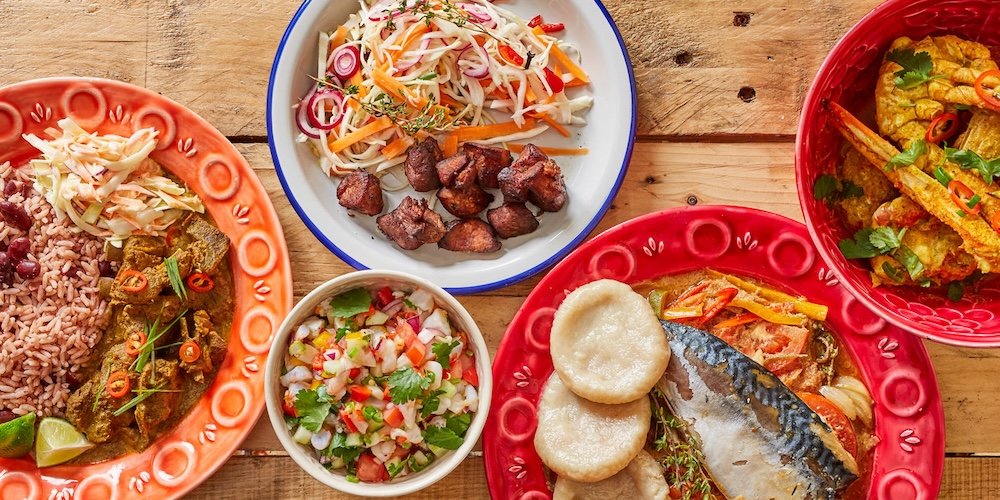
When comparing “US Virgin Islands vs British Virgin Islands,” the cultural heritage and culinary delights of each destination offer a feast for the senses.
Both island groups celebrate a vibrant blend of African, European, and indigenous influences, reflected in their festivals, music, and, importantly, their food.
Here’s what you need to know to savor the cultural and gastronomic richness of these Caribbean gems.
Insight into the Cultural Heritage and Festivals
US Virgin Islands: The cultural fabric of the US Virgin Islands is woven with threads of African heritage, European colonial history, and American influences. Carnival is a highlight, with the largest celebrations occurring on Saint Thomas in April/May and on Saint Croix in December/January, featuring parades, music, and dance that showcase the islands’ vibrant culture. The Transfer Day and Emancipation Day celebrations are also significant, marking important historical milestones with ceremonies and cultural events.
British Virgin Islands: The British Virgin Islands celebrate their cultural diversity through music, dance, and sailing. The BVI Emancipation Festival in August is a week-long celebration of freedom from slavery, filled with parades, live music, and food fairs. The annual Spring Regatta and Sailing Festival, one of the Caribbean’s top sailing events, combines competitive racing with cultural festivities, offering a glimpse into the islands’ sailing heritage.
Comparison of Local Cuisine and Must-Try Dishes
The culinary landscapes of the US Virgin Islands and British Virgin Islands are a testament to their cultural melting pots, with each offering distinct flavors and dishes.
- US Virgin Islands: Cuisine here is a blend of Caribbean, African, and American influences. Must-try dishes include the savory pate (a flaky pastry filled with spiced meat or fish), kallaloo (a hearty stew made with greens, okra, and meat or seafood), and johnnycakes. The rich, spiced Cruzan rum from Saint Croix is also a not-to-be-missed treat.
- British Virgin Islands: The British Virgin Islands’ cuisine features fresh seafood and vibrant flavors. Lobster and conch are staples, best enjoyed on the beach with a view of the sea. Roti, a Caribbean flatbread filled with curried meat or vegetables, and fungi, a cornmeal dish often served with fish, reflect the islands’ culinary diversity. The Painkiller, a creamy coconut, pineapple, and rum cocktail, originated here and is a must-try.
Recommendations for Cultural Experiences and Local Interactions
US Virgin Islands: Engage with the local culture by attending a live music performance of Quelbe, the traditional folk music, or by visiting during carnival. Participate in cultural workshops or cooking classes to delve deeper into the local traditions and cuisine.
British Virgin Islands: To experience the cultural heart of the British Virgin Islands, visit during the Emancipation Festival or join a sailing event, even as a spectator. Local art galleries and markets offer a chance to interact with artisans and purchase authentic crafts. Culinary tours or local cooking classes are excellent ways to immerse yourself in the flavors of the islands.
Accommodation and Hospitality
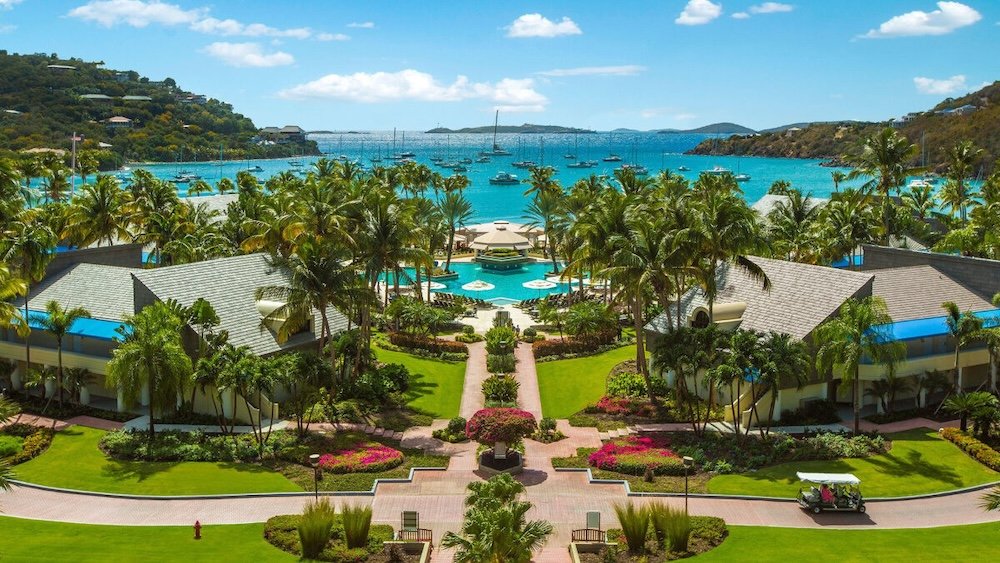
Choosing between the “US Virgin Islands vs British Virgin Islands” extends to the diverse accommodation options available.
Both destinations are renowned for their welcoming hospitality, ensuring visitors feel at home, whether they’re in a high-end resort or a cozy local inn.
Overview of Accommodation Options
US Virgin Islands: In the US Virgin Islands, accommodation options cater to every type of traveler. Luxury seekers will find their haven in world-class resorts and private villas, especially on Saint Thomas and Saint John, offering exceptional amenities and service. For those looking for a more intimate connection with the local culture and nature, eco-lodges and beachfront guesthouses on Saint John and Saint Croix provide serene escapes. Budget travelers have access to a variety of affordable vacation rentals and small hotels, ensuring comfort without the high price tag.
British Virgin Islands: The British Virgin Islands’ accommodation landscape is dotted with luxury resorts, private island retreats, and boutique hotels, particularly in Tortola and Virgin Gorda, known for their exclusivity and attention to detail. Yacht charters offer another unique lodging experience, allowing guests to wake up in a different bay each morning. For those seeking simplicity and charm, there are beachside cottages and villas that offer a more personalized and authentic stay.
Discussion on the Hospitality Scene
The hospitality scene in both the US Virgin Islands and British Virgin Islands is rooted in a deep sense of community and warmth.
Service in the US Virgin Islands is friendly and welcoming, with a blend of American efficiency and Caribbean laid-back charm.
In the British Virgin Islands, the hospitality is characterized by British politeness mixed with local warmth, creating a relaxed and courteous atmosphere.
Both destinations pride themselves on their ability to make guests feel at ease, reflecting the islands’ spirit in every interaction.
Tips on Finding the Best Places to Stay
- Define Your Priorities: Whether it’s beach access, a central location, or peace and quiet, knowing what’s most important to you can help narrow down your options.
- Read Reviews: Online reviews can provide insights into the experiences of previous guests, highlighting the pros and cons of each accommodation.
- Consider Off-Peak Travel: Visiting outside the high season can offer more competitive rates and a wider selection of available properties.
- Explore Package Deals: Some resorts and hotels offer packages that include meals, activities, and transportation, which can be cost-effective.
- Contact Properties Directly: For the best rates and special requests, consider reaching out to accommodations directly, as they may offer deals not available online.
- Utilize Local Tourism Boards: Both destinations have tourism websites offering lists of certified accommodations, ensuring reputable and quality stays.
Cost of Travel and Budget Planning
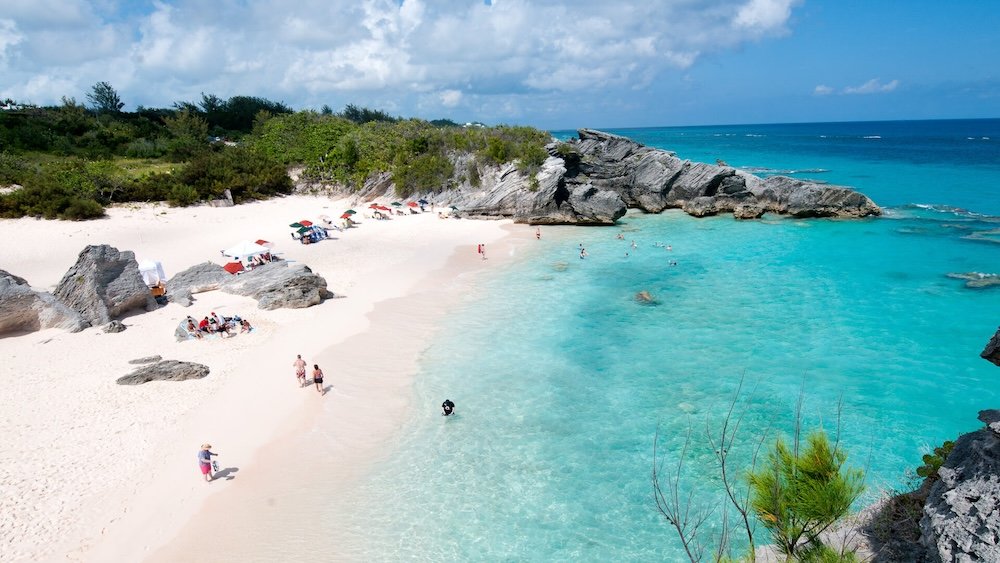
The Caribbean is a dream destination for many, but the cost of travel can vary significantly between locations.
In the debate of “US Virgin Islands vs British Virgin Islands,” budget considerations play a pivotal role in deciding which paradise to visit first.
Comparison of the General Cost of Travel
US Virgin Islands: Generally, the US Virgin Islands are considered to be more accessible in terms of cost, particularly for US visitors. Accommodations, dining, and activities can be found to suit a range of budgets, from economical to luxury. The absence of passport requirements for US citizens and direct flights from the mainland also help in keeping travel expenses down.
British Virgin Islands: Known for its exclusive resorts and world-renowned sailing opportunities, the British Virgin Islands tend to cater to a more luxury-seeking crowd, which can reflect in higher costs for accommodations, dining, and activities. However, there are options for budget-conscious travelers, such as smaller guesthouses and villa rentals, which can offer a more affordable way to enjoy the islands’ beauty.
Tips on Budget Planning for Both Destinations
- Travel Off-Peak: Both destinations have peak and off-peak seasons. Prices for flights, accommodations, and some activities can be significantly lower during the off-peak months.
- Book in Advance: Especially for travel during peak times, booking your flights and stay well in advance can secure better rates.
- Consider Alternative Accommodations: Exploring options like vacation rentals, guesthouses, or even camping (where available) can offer substantial savings over traditional hotels and resorts.
- Eat Like a Local: Dining at local eateries instead of tourist-centric restaurants can not only save money but also offer a more authentic taste of the islands.
- Use Public Transportation: Where available, public transportation can be a cost-effective way to explore the islands.
Cost-Saving Strategies or Passes for Tourists
- US Virgin Islands: Taking advantage of duty-free shopping can result in significant savings on items like liquor, tobacco, and jewelry. Additionally, many of the natural attractions, such as beaches and parks, are free or have a very low cost of entry.
- British Virgin Islands: For those interested in sailing or island-hopping, considering a bareboat charter (if you’re qualified) can be more economical than booking individual excursions. Also, leveraging package deals offered by resorts or tour operators that include meals, activities, and accommodations can lead to savings.
Safety and Traveler Tips
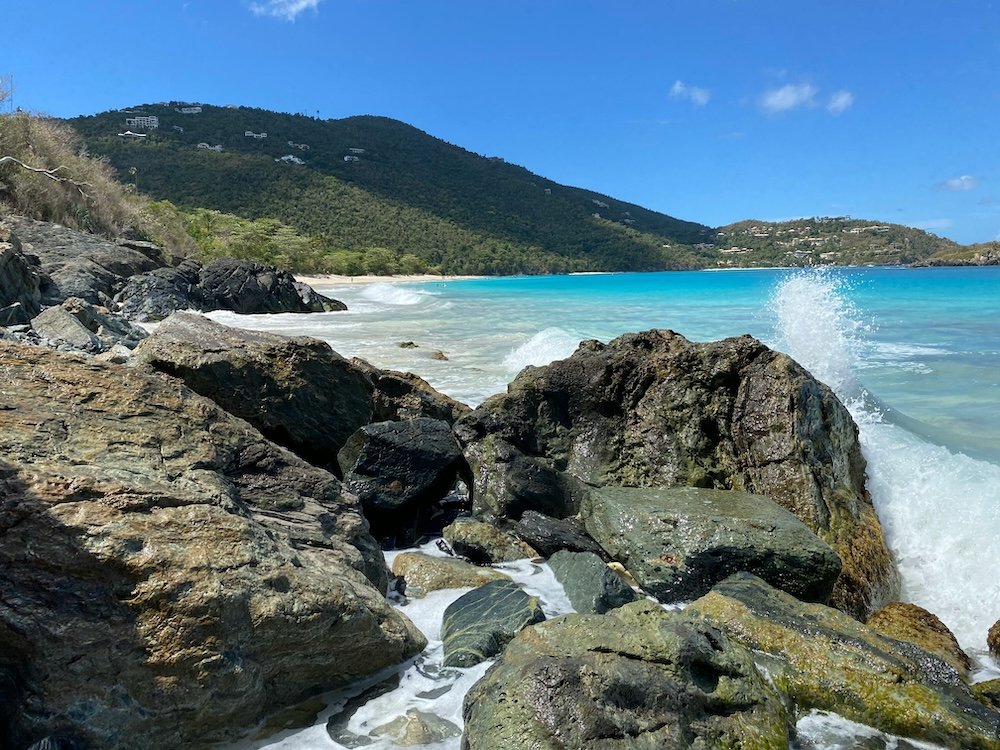
The allure of the Caribbean’s serene beaches, lush landscapes, and welcoming cultures is undeniable.
When it comes to the “US Virgin Islands vs British Virgin Islands,” understanding the safety landscape and having access to practical tips can make your trip not only enjoyable but also safe.
Overview of Safety
US Virgin Islands: The US Virgin Islands are considered safe for tourists, with the local government and tourism industry taking significant steps to ensure visitors’ security. Like any travel destination, petty theft and opportunistic crimes can occur, especially in crowded or tourist-heavy areas. Vigilance and basic safety precautions are advised.
British Virgin Islands: Similarly, the British Virgin Islands are known for their low crime rate and the overall safety of tourists. The islands maintain a relaxed and secure environment, with the community and local authorities working together to preserve the tranquility that the BVI is famous for.
Tips for Travelers to Ensure a Safe and Enjoyable Trip
- Be Aware of Your Surroundings: Keep an eye on your personal belongings, especially in busy areas or public beaches.
- Use Trusted Transportation: Opt for licensed taxis or transportation services recommended by your accommodation or tourism guides.
- Stay Informed: Keep up with local news and any travel advisories issued by your home country or the local government.
- Respect Local Customs and Laws: Familiarize yourself with and adhere to local laws and customs to avoid any inadvertent offenses.
- Protect Your Health: Use sunscreen, stay hydrated, and be cautious when engaging in water sports or activities.
Insight into Health Care Facilities and Emergency Services
US Virgin Islands: The US Virgin Islands have well-equipped hospitals and health care facilities on the main islands (St. Thomas, St. Croix, and St. John), along with numerous pharmacies and clinics. Emergency services are responsive, and assistance is readily available for tourists in need.
British Virgin Islands: Health care facilities in the British Virgin Islands include hospitals on Tortola and Virgin Gorda, with smaller clinics spread throughout the other islands. Emergency services are efficient, and medical care is of a good standard, though serious cases may require transfer to larger facilities abroad.
Pros and Cons
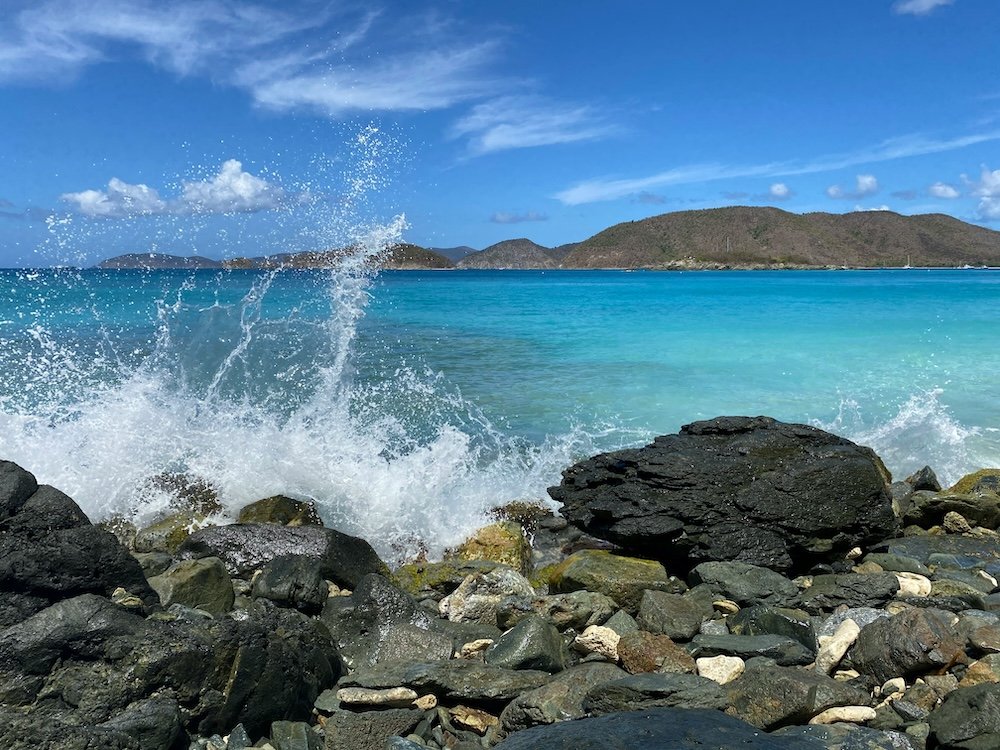
Deciding between the “US Virgin Islands vs British Virgin Islands” comes down to what you value most in your vacation. Each offers its own slice of paradise with distinct characteristics.
US Virgin Islands
Pros:
- Accessibility: Direct flights from the US mainland make it a convenient option for American travelers.
- Diversity of Activities: From historical tours in St. Croix to bustling shopping districts in St. Thomas and natural exploration in St. John, there’s something for every type of traveler.
- US Territory Benefits: No passport required for US citizens, and the US dollar is the official currency, simplifying travel logistics.
Cons:
- Crowded Spots: Popular areas can become crowded, especially during peak travel seasons and cruise ship arrivals.
- Cost of Living: While there are budget options, the cost of accommodations, dining, and activities can add up quickly.
British Virgin Islands
Pros:
- Exclusivity: Known for its luxurious resorts and private islands, offering a more exclusive and intimate experience.
- Sailing Paradise: World-class sailing conditions make it a top choice for sailors and those looking to explore multiple islands.
- Natural Beauty: Less commercialized, with pristine beaches and a laid-back atmosphere that appeals to nature lovers and those seeking relaxation.
Cons:
- Higher Costs: Generally, more expensive due to its luxury accommodations and services, which may not cater to budget travelers.
- Accessibility: Fewer direct flights from the US mainland, requiring connections that can increase travel time and expense.
Conclusion
The debate between visiting the “US Virgin Islands vs British Virgin Islands” isn’t about finding a clear winner, but rather understanding which destination aligns best with your vacation desires and expectations.
Both island groups promise unforgettable experiences but cater to different preferences and styles of travel.
Recommendations Based on Types of Travelers
- Families: The US Virgin Islands, with their easy access, variety of accommodations, and plethora of activities suitable for all ages, might be more appealing. The islands offer educational and fun experiences that can keep both kids and adults entertained.
- Couples: Those seeking a romantic getaway might find the British Virgin Islands’ secluded beaches and luxury resorts more to their liking. The BVI’s intimate setting provides the perfect backdrop for a honeymoon or romantic escape.
- Solo Travelers: Solo adventurers looking for a mix of socializing, exploration, and safety might lean towards the US Virgin Islands. The ease of getting around and meeting fellow travelers, along with a wide range of activities, makes it a great choice.
- Adventure Seekers: If your idea of adventure involves sailing, diving, and exploring less-trodden paths, the British Virgin Islands could be your ideal destination. The world-class sailing and abundance of natural wonders offer endless adventures.
While this guide aims to delineate the “US Virgin Islands vs British Virgin Islands” to aid in your decision-making, the truth is, each group of islands holds its own allure that deserves to be experienced.
If time and budget allow, consider visiting both to fully embrace the diversity and beauty of the Caribbean.
Your choice might come down to what you wish to experience first—be it the cultural richness and convenience of the USVI or the exclusive serenity and sailing adventures of the BVI.
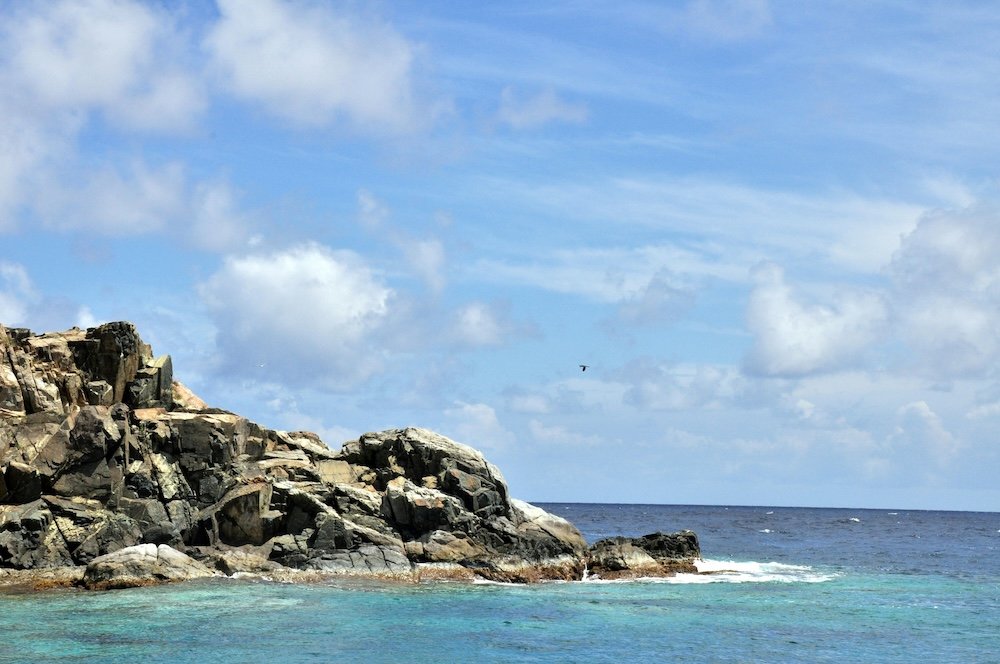
FAQ’s About British Virgin Islands vs US Virgin Islands:
Which is better U.S. or British Virgin Islands?
Determining whether the U.S. Virgin Islands or British Virgin Islands are “better” depends on personal preferences.
The U.S. Virgin Islands offer easier access for U.S. travelers, a wider range of activities, and the convenience of using U.S. dollars.
They’re ideal for travelers looking for a blend of beaches, historical sites, and a mix of laid-back and commercial environments.
The British Virgin Islands are renowned for their sailing, exclusive resorts, and pristine natural beauty, appealing to those seeking a more secluded or luxury vacation, especially sailors and those who prefer a quieter, more laid-back atmosphere.
Why are there two Virgin Islands?
The division into two Virgin Islands, the U.S. and British, is a result of colonial history. The British Virgin Islands became a British colony in the 17th century.
The U.S. Virgin Islands were purchased by the United States from Denmark in 1917. This division reflects the geopolitical influences and colonial powers in the Caribbean region over centuries.
Are the British Virgin Islands part of the U.S. Virgin Islands?
No, the British Virgin Islands are not part of the U.S. Virgin Islands.
The British Virgin Islands are a British Overseas Territory, governed by the United Kingdom, while the U.S. Virgin Islands are an unincorporated territory of the United States.
Can you go from U.S. Virgin Islands to British Virgin Islands without a passport?
No, traveling from the U.S. Virgin Islands to the British Virgin Islands requires a passport for all travelers.
While U.S. citizens do not need a passport to enter the U.S. Virgin Islands, crossing into the British Virgin Islands is an international journey requiring a passport due to the different jurisdictions involved.
Which of the Virgin Islands is the prettiest?
Beauty is subjective, and each of the Virgin Islands has its unique charm and attractions.
St. John, in the U.S. Virgin Islands, is often celebrated for its natural beauty, with over half of the island designated as a national park.
Virgin Gorda in the British Virgin Islands is famed for the Baths, a breathtaking coastal area with giant granite boulders forming spectacular sea pools and grottos.
Ultimately, the “prettiest” island may depend on one’s personal preference for beaches, landscapes, and natural features.
Is it worth it to go to the U.S. Virgin Islands?
Yes, it is worth visiting the U.S. Virgin Islands.
They offer a rich mix of cultural history, beautiful natural landscapes, and a variety of activities for all types of travelers.
From the bustling streets of Charlotte Amalie in St. Thomas to the tranquil beaches of St. John and the cultural richness of St. Croix, the U.S. Virgin Islands provide a compelling destination for those seeking a Caribbean getaway.
Which Virgin Island is least expensive?
Generally, St. Croix in the U.S. Virgin Islands tends to be less expensive than its counterparts in both the U.S. and British Virgin Islands.
It offers a variety of accommodations and activities that can suit tighter budgets, without sacrificing the beauty and enjoyment of a Caribbean vacation.
Which is the safest of the Virgin Islands?
All of the Virgin Islands are generally safe for tourists, especially in areas commonly visited by travelers.
However, like any travel destination, it’s important to take standard safety precautions. In terms of lower crime rates, the British Virgin Islands often are perceived as safer, though this can vary and situations can change, so it’s always best to check current travel advisories and local news.
What is the safest island in the Virgin Islands?
Regarding safety, the British Virgin Islands as a whole are often cited as among the safest areas in the Caribbean for travelers, with Tortola being particularly well-regarded.
However, safety can depend on specific locations and circumstances, so travelers are always advised to stay informed and exercise common sense regardless of their destination.
